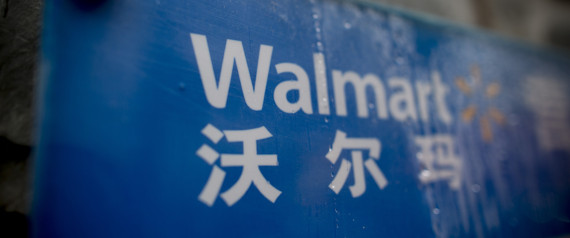
SHANGHAI (Reuters) - Wal-Mart Stores Inc, the world's largest retailer, has recalled donkey meat sold at some outlets in China after tests showed the product contained the DNA of other animals, the U.S. company said.
Wal-Mart will reimburse customers who bought the tainted "Five Spice" donkey meat and is helping local food and industry agencies in eastern Shandong province investigate its Chinese supplier, it said late on Wednesday in official posts on China's Twitter-like Weibo. The Shandong Food and Drug Administration earlier said the product contained fox meat.
The scandal could dent Wal-Mart's reputation for quality in China's $1 trillion food and grocery market where it plans to open 110 new stores in the next few years. China is the largest grocery market in the world and is set to grow to $1.5 trillion by 2016, according to the Institute of Grocery Distribution.
"This is another hit on Wal-Mart's brand, meaning wealthy shoppers will start to lose the trust they had before," said Shaun Rein, Shanghai-based managing director of China Market Research (CMR) Group. CMR estimates Wal-Mart's market share fell from 7.5 percent to 5.2 percent over the last three years.
Donkey meat is a popular snack in some areas of China, although it only accounts for a tiny fraction of overall meat consumption. In 2011 China slaughtered 2.4 million donkeys, according to country's livestock industry yearbook.
TRACK RECORD
Wal-Mart, French grocer Carrefour SA, McDonald's Corp and KFC-parent Yum Brands Inc among others, have come under fire before in China over food safety issues, a sensitive topic in a country riddled with scares from a fatal tainted milk scandal to recycled "gutter oil" used for cooking.
Wal-Mart said it had set up an investigation team to look into the incident, would strengthen food safety rules and take legal action against the product supplier. It added the person in charge at the supplier factory had already been detained.
"We are deeply sorry for this whole affair," said Wal-Mart's China president and CEO, Greg Foran. "It is a deep lesson (for us) that we need to continue to increase investment in supplier management."
The U.S. retailer has had a troubled past in China. In 2011, China fined Wal-Mart, along with Carrefour, a combined 9.5 million yuan ($1.57 million) for manipulating product prices. Wal-Mart was also fined that year in China for selling duck meat past its expiry date.
Food safety scandals can have a significant impact in China. Yum has struggled to recover sales in China more than a year after a chicken supplier to KFC in the country was found to have used excess levels of antibiotics. Analysts, though, said the impact of the current scare would be far more subdued.
Wal-Mart, which operates more than 400 facilities in China, competes with market leaders Sun Art Retail Group Ltd and China Resources Enterprise Ltd, which in August teamed up with British retailer Tesco Plc.
Consumers on popular microblogging site Sina Weibo were at a loss whether to criticize Wal-Mart or support it. Online sentiment can spread quickly in China where there is a high proportion of social media users.
"Isn't fox meat more expensive than donkey meat anyway?" asked one bemused user.
($1 = 6.0539 Chinese yuan)
(Additional reporting by SHANGHAI newsroom; Editing by Matt Driskill)
Also on HuffPost:
References
- ^ Send us a tip (www.huffingtonpost.com)
- ^ Send us a photo or video (www.huffingtonpost.com)
- ^ Suggest a correction (www.huffingtonpost.com)


0 comments:
Post a Comment